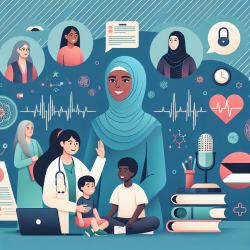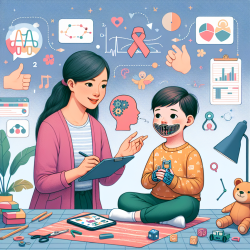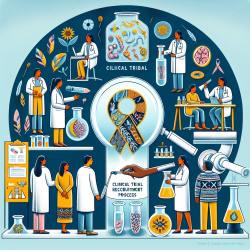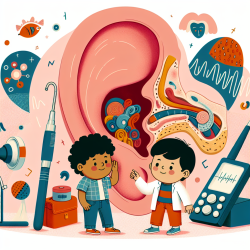Empowering Change: Leveraging Research to Improve Outcomes for Children
At TinyEYE, our mission is to provide exceptional online therapy services to schools, ensuring that every child receives the support they need to thrive. As practitioners, it is crucial to continually improve our skills and strategies based on the latest research. One such impactful study is "Beyond the Sociocultural Rhetoric: Female Genital Mutilation, Cultural Values and the Symbolic Capital (Honor) of Women and Their Family in Conakry, Guinea—A Focused Ethnography Among 'Positive Deviants'."
This research offers valuable insights into the sociocultural dynamics surrounding Female Genital Mutilation (FGM) and highlights the importance of culturally grounded approaches in promoting the abandonment of harmful practices. Here, we explore how practitioners can implement the outcomes of this research to improve their skills and create better outcomes for children.
Understanding the Research
The study conducted in Conakry, Guinea, focused on the perspectives of Guineans who do not practice FGM ("positive deviants") and those who are supportive of abandoning the practice ("reluctant adherents"). The findings revealed that FGM does not guarantee the intended sociocultural benefits, such as ensuring virginity, preventing infidelity, or preserving family honor. Instead, it has harmful consequences, including impaired sexual satisfaction, increased risk of infertility, and obstetric complications.
Participants emphasized that education on sexuality and culturally appropriate behaviors is essential for promoting the abandonment of FGM. They also highlighted the importance of using culturally resonant messages to encourage change.
Implementing Research Outcomes
As practitioners, we can leverage these findings to enhance our approaches in several ways:
- Promote Culturally Grounded Education: Develop educational programs that provide comprehensive information on sexuality and culturally valued behaviors. Ensure these programs are accessible to both girls and boys from an early age.
- Use Culturally Resonant Messaging: Craft messages that align with the cultural values of the communities we serve. Emphasize the benefits of maintaining physical integrity and the positive impact on family honor and symbolic capital.
- Engage Local Leaders: Collaborate with local leaders, including religious figures, who have credibility and influence within the community. Their endorsement can significantly enhance the acceptance and impact of our initiatives.
- Utilize Multiple Platforms: Disseminate educational content through various media channels, including schools, community centers, radio, and online platforms, to reach a broader audience.
- Encourage Critical Thinking: Foster critical thinking skills among young people to help them make informed decisions about their health and well-being.
Encouraging Further Research
While the study provides valuable insights, it also highlights the need for further research to explore the barriers to change among "reluctant adherents" and to identify the most effective strategies for promoting FGM abandonment in different contexts. Practitioners are encouraged to engage in or support ongoing research efforts to deepen our understanding and enhance our approaches.
Conclusion
By implementing the outcomes of this research, practitioners can improve their skills and create better outcomes for children. At TinyEYE, we are committed to leveraging data-driven decisions and culturally grounded approaches to ensure every child receives the support they need to thrive.
To read the original research paper, please follow this link: Beyond the Sociocultural Rhetoric: Female Genital Mutilation, Cultural Values and the Symbolic Capital (Honor) of Women and Their Family in Conakry, Guinea—A Focused Ethnography Among “Positive Deviants”.










